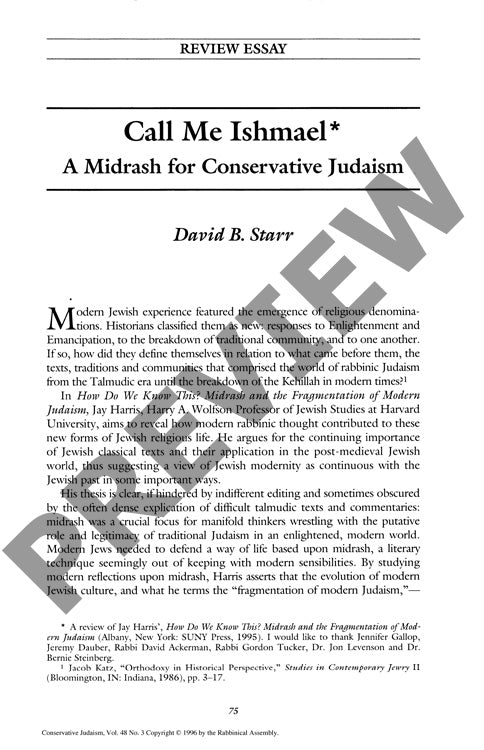Review Essay Call Me Ishmael a Midrash F
Couldn't load pickup availability
The fragmentation of modern Judaism into distinct denominations hinged crucially on how each movement interpreted midrash and rabbinic authority, as Jay Harris demonstrates in "How Do We Know This? Midrash and the Fragmentation of Modern Judaism." Through extensive analysis of rabbinic literature from the Talmudic era to modernity, Harris reveals how midrash became a theological battleground as Jewish movements confronted Enlightenment challenges. Reform thinkers like Abraham Geiger reframed midrash as historically contingent rather than eternally binding, while Orthodox leaders such as Samson Hirsch deliberately minimized midrashic interpretation to maintain traditional authority structures. Between these poles, traditionalist scholars including Zecharias Frankel and Heinrich Graetz sought to reconcile historical methodology with continued halakhic observance. By constructing different readings of ancient midrashic traditions, each denomination created legitimizing links to Jewish heritage despite profound cultural shifts. Harris's work illuminates the persistent centrality of rabbinic thought in Jewish responses to modernity, suggesting that varied interpretations of midrashic authority directly shaped denominational divisions. These findings hold particular significance for Conservative Judaism, exposing ongoing tensions between academic inquiry and community cohesion in sustaining both textual engagement and religious commitment today.

More Information
-
Physical Description
-
Publication Information
Published 1996
ISBN
-
Publication Credits
David Starr

